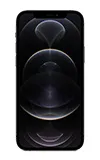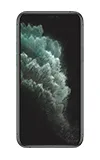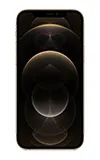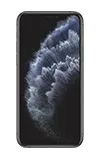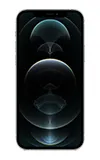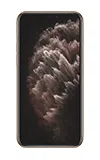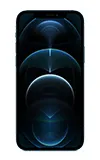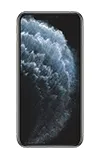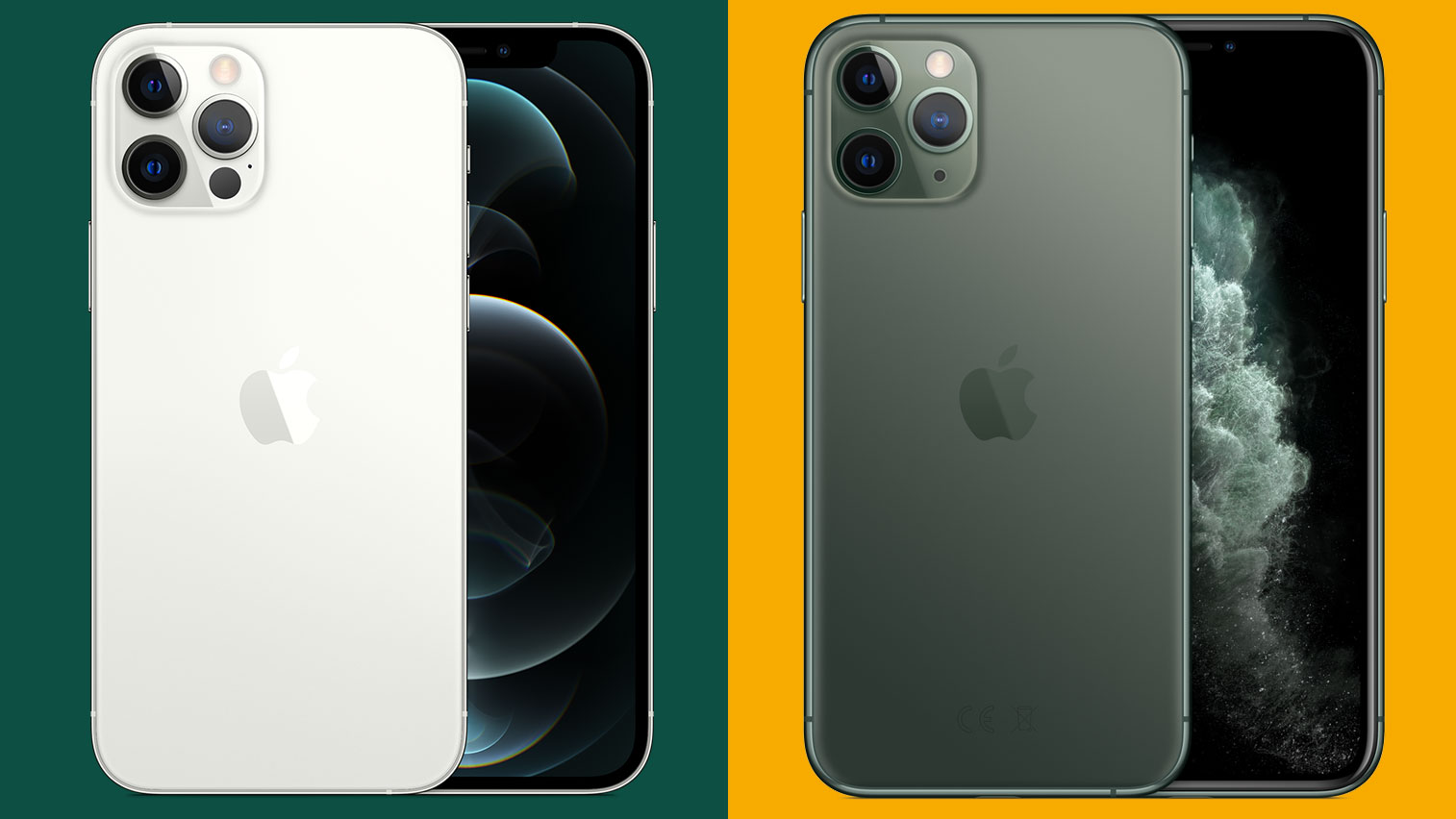
Sign up for breaking news, reviews, opinion, top tech deals, and more.
You are now subscribed
Your newsletter sign-up was successful
Pitting together the iPhone 12 Pro and iPhone 11 Pro is only natural, since they're two different generations of Apple's Pro-tier iPhone - but what exactly is the difference?
If we compare the iPhone 11 and iPhone 12 lines like for like, then it could be argued that the iPhone 12 Pro offers the smallest number of improvements over its immediate predecessor versus the rest of the range.
So, there’s only one way to settle this: a straight shoot-out between the iPhone 12 Pro and the iPhone 11 Pro. Is the new phone a mere iterative update in a fancy new jacket, or are we looking at a true pro-level upgrade? And are either of them really the best iPhone?
iPhone 12 Pro vs iPhone 11 Pro price and availability
The 128GB iPhone 12 Pro has been available for $999 / £999 / AU$1,699 from Apple and all good third-party retailers since October 23, 2020. Those after more storage will have to pay $1,099 / £1,099 / AU$1,899 for 256GB or $1,299 / £1,299 / AU$2,219 for 512GB.
When it launched on September 20, 2019, iPhone 11 Pro pricing started at $999 / £1,049 / AU$1,749. It’s worth mentioning this was for 64GB of storage, which is half the starting point of its successor.
You can no longer buy the iPhone 11 Pro direct from Apple, but it can be picked up new from some third-party retailers. Availability across the various models and colors is a little spotty, but you’ll tend to find it at a discount where sold.
At the time of writing, Target and Walmart in the US are selling the entry-level 64GB model for $900, while Amazon in the UK has it for £919 (about AU$1,627).
Sign up for breaking news, reviews, opinion, top tech deals, and more.
iPhone 12 Pro vs iPhone 11 Pro design
We were somewhat underwhelmed by the iPhone 11 Pro’s design in our original 2019 review. It was the over familiar nature of its appearance that proved disappointing; the handset is essentially built to the 2017 iPhone X blueprint, with a couple of minor cosmetic tweaks here and there.
You got the same rounded edges and prominent notch on the 12 Pro as the iPhone 11 Pro, and an identically sized display. It remained a classy, premium piece of kit, but it didn’t set the pulse racing.
Among those fresh touches was a frosted matte finish on the back, which proved to be a subtle change from the reflective glass we’d grown used to seeing from previous iPhones. This also made it easier to grip, not to mention less prone to greasy smudges.
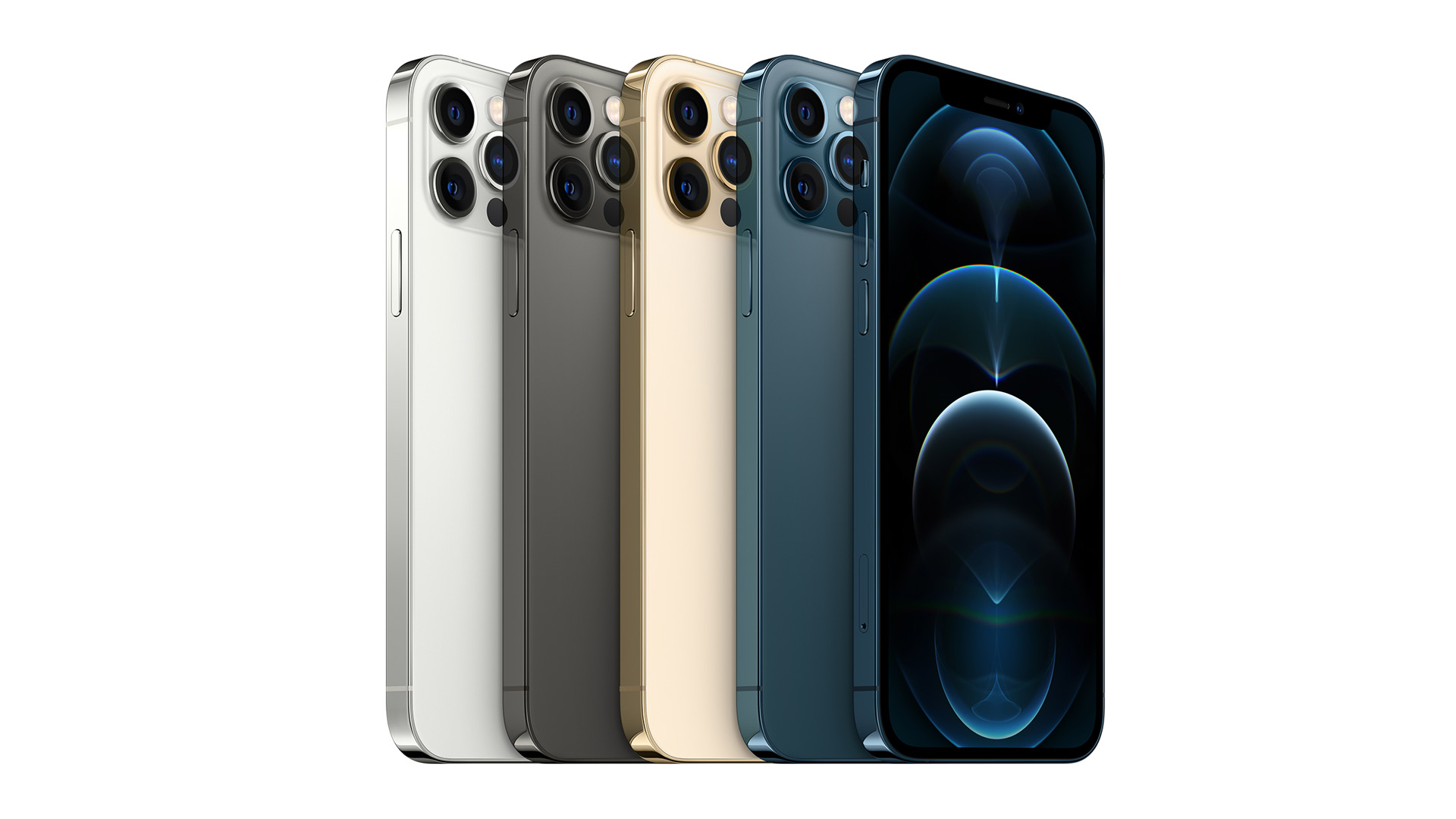
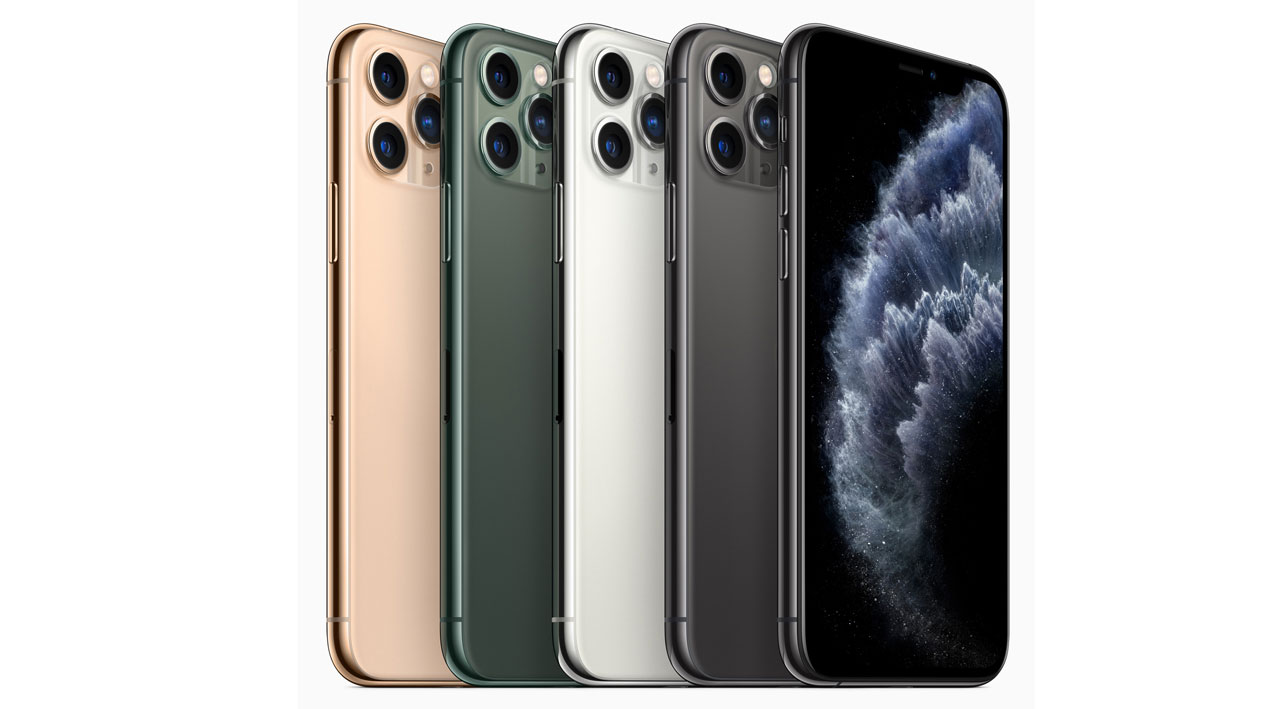
The iPhone 11 Pro saw Apple debuting its triple camera module, too, which certainly caught the eye. We weren’t massively sold on this asymmetrical blister at the time, but it’s grown on us a little since – possibly because the iPhone 12 Pro features something very similar.
By contrast, the iPhone 12 Pro is something of a breath of fresh air, even if it takes its cues from a pre-iPhone X era. The curved edges of the iPhone 11 Pro have been squared off, and the edges sharpened to an 90-degree point, much like the iPhone 5.
The two Pros are of almost identical weight, but the iPhone 12 Pro is 0.7mm thinner than its predecessor. Together with those square edges, it feels like an altogether flatter phone.
Apple has added a ‘nano-crystalline’ Ceramic Shield to the front of the iPhone 12 Pro, which makes its screen four times stronger than that of the iPhone 11 Pro. That new right-angled approach will apparently make the back twice as resistant to drops – although it’s still glass, and as such prone to cracking, as our reviewer discovered. It will survive a longer spell immersed in water, too, despite the two phones sharing the same IP68 rating.
In terms of how it feels in the hand, we found the sharp edges of the iPhone 12 Pro makes it less comfortable to hold than the iPhone 11 Pro, but far easier when it comes to accessing and pressing the buttons.
iPhone 12 Pro vs iPhone 11 Pro display
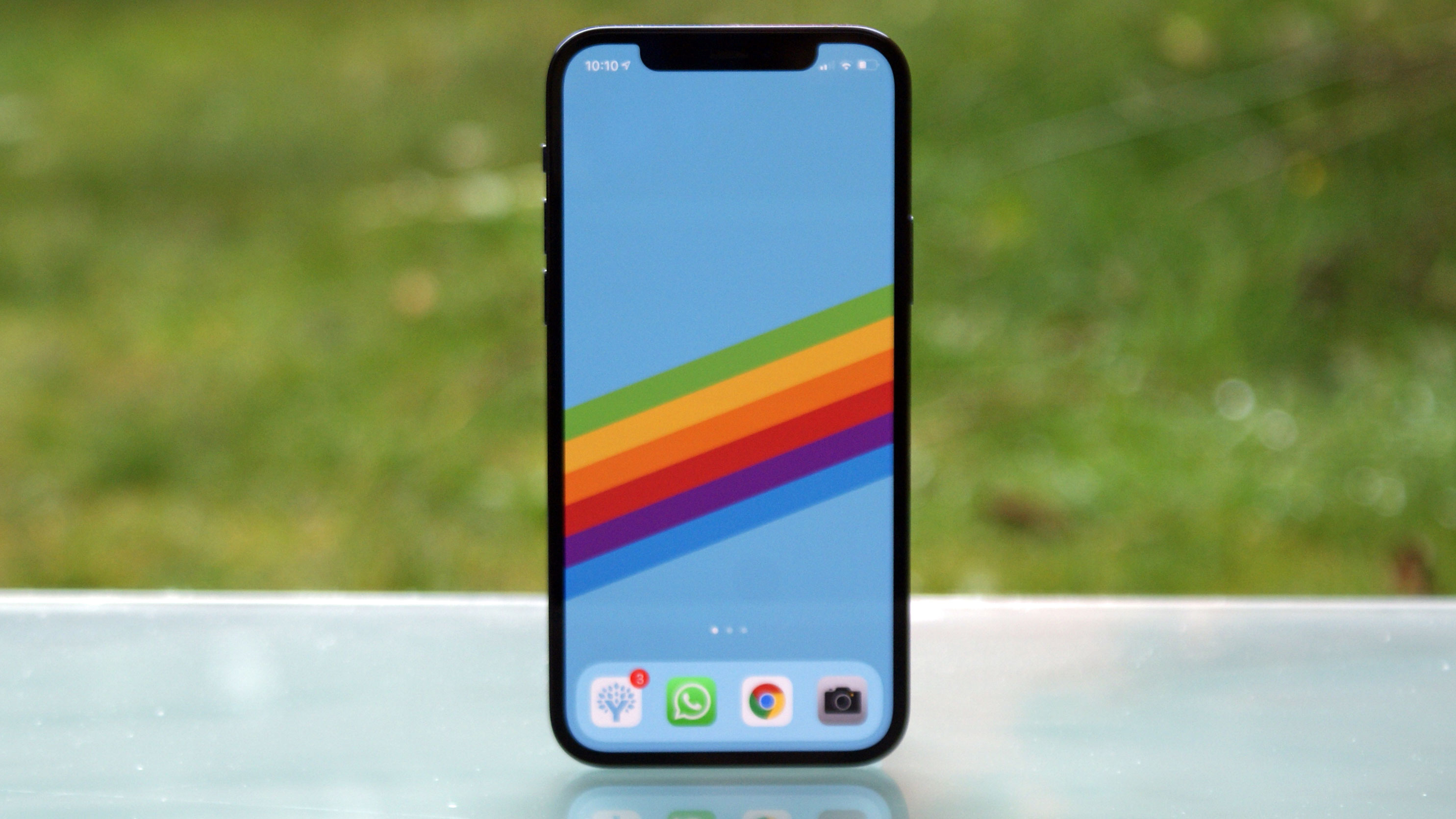
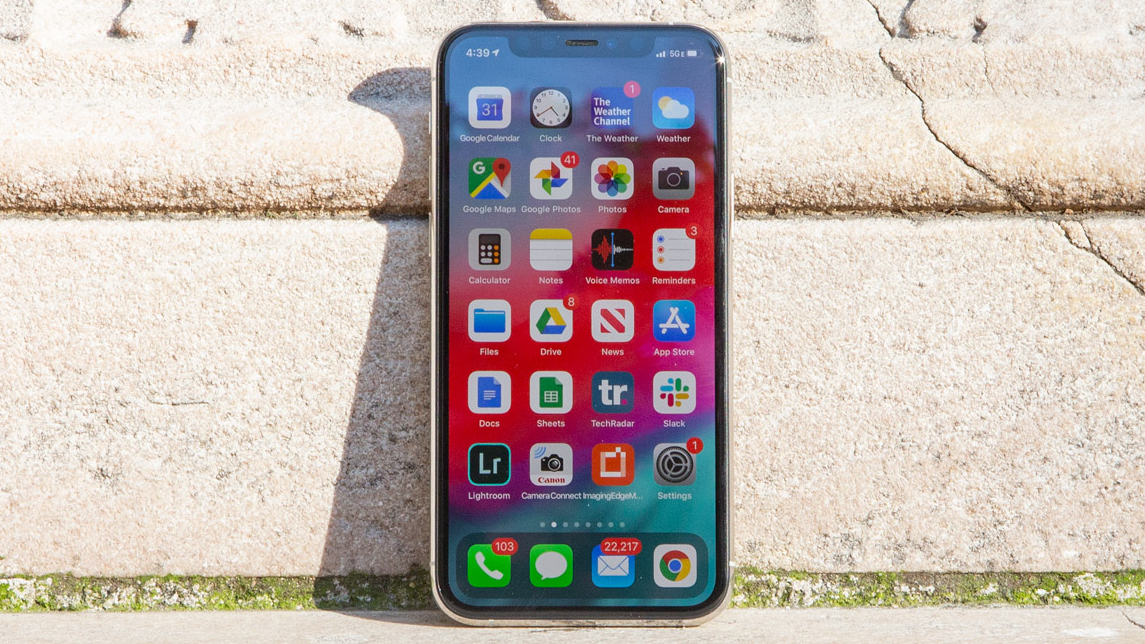
The main difference between the iPhone 12 Pro and iPhone 11 Pro displays comes down to size. At 6.1 inches, the 12 Pro screen is bigger by 0.3 inches, despite the fact that the chassis is no larger.
Otherwise, the iPhone 12 Pro shares the same Super Retina XDR OLED screen technology as its immediate forebear. Both handsets get precisely as bright as one another (800 nits typical, 1200 nits peak), and have a very similar pixel density of around 460ppi.
This inherent similarity isn’t a massive disappointment in itself. Both displays are punchy, bright and beautifully balanced, showing off HDR-enhanced media content very well indeed. In fact, we named the iPhone 12 Pro display as “one of the best out there” in our review, thanks to “deep blacks, vivid whites and a vast range of colors”.
Our one big criticism of both screens is that they lack a higher refresh rate. Both are stuck at 60Hz, which results in a scrolling motion that’s half as fluid as rival phones such as the Samsung Galaxy S20 and the OnePlus 8 Pro.
Given that Apple introduced its own 120Hz ProMotion display technology in the 2017 iPad Pro, such a feature feels increasingly overdue on the iPhone Pro range.
iPhone 12 Pro vs iPhone 11 Pro camera
Apple has improved the iPhone 12’s camera hardware only a little over the iPhone 11 Pro.
Both are triple-camera affairs, with what seems to be the same three 12-megapixel sensors covering wide, ultrawide, and 2X telephoto angles. The most obvious addition to the iPhone 12 Pro here is a LiDAR scanner, which makes it easier for the iPhone to figure out depth information.
This has potential ramifications for AR content, but in the here and now it means that the iPhone 12 Pro camera locks onto its subjects faster and better, especially in low lighting. Together with a wider f/1.6 aperture for the main sensor, it’s simply a better camera in low light.
Indeed, the iPhone 12 Pro gains a number of new low-light tricks, such as the ability to engage Night mode in all three sensors, and the related provision of Night mode portrait shots. Even the front camera can take Night mode shots this time around.
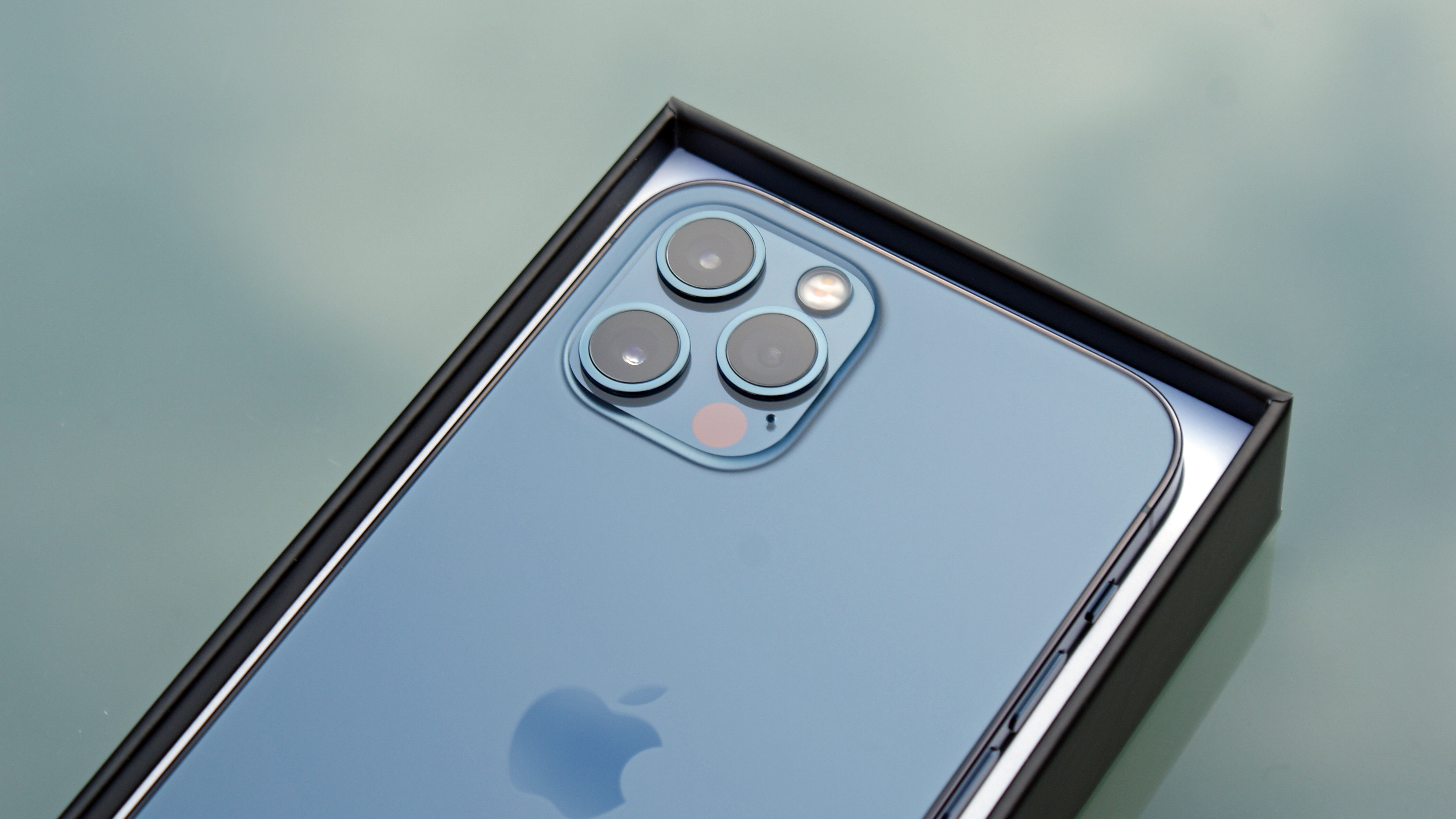
Another addition to the iPhone 12 Pro camera is support for the ProRAW file format. This gives you the benefits of the raw format, in which more data is preserved whilst still bringing JPEG-level computational improvements to bear.
Or that’s the theory at least. ProRAW isn’t going to arrive for most iPhone 12 Pro users until iOS 14.3 lands, so we’re not sure if it lives up to Apple’s elevated claims just yet.
One additional camera feature that was present in the iPhone 12 Pro at release is Dolby Vision video recording, which boosts the tone and dynamic range of your footage at an impressive 4K and 60 frames per second. That said, you can only watch back this footage on compatible devices, of which the iPhone 12 Pro is one of a relatively few right now.
iPhone 12 Pro vs iPhone 11 Pro specs and performance
As we noted in our iPhone 12 Pro review, talking about an iPhone’s performance feels a little redundant these days. Every new iPhone is super-fast, and Android rivals generally find themselves playing catchup for the following year or two.
All of which means that, while the iPhone 12 Pro is comfortably faster than the iPhone 11 Pro, you’d be hard-pressed to notice a difference. They both eat through multitasking, web browsing, 4K video tasks, and 3D games with contemptuous ease.
It’s just that the iPhone 12 Pro is even more effortless. Its A14 Bionic chip and 6GB of RAM combine to provide a roughly 20% boost in performance over the iPhone 11 Pro’s A13 with 4GB.
As well as adding 50% more RAM, the iPhone 12 Pro also doubles the default storage provision – and not before time. We’ve been grumbling about the 64GB provision that ran right up to the iPhone 11 Pro (and the iPhone 12, for that matter), so Apple has finally done the right thing with a 128GB iPhone 12 Pro starter model.
We should also highlight the biggest new feature of the iPhone 12 Pro according to Apple: 5G connectivity. Like the rest of the iPhone 12 family, and unlike the iPhone 11 Pro, the iPhone 12 Pro can connect to the internet via the next-generation mobile network.
Given that only a small percentage of the US, UK, and Australia can actually make full use of 5G right now, we’re a whole lot less enthused about this than Apple. But at the very least, the iPhone 12 Pro will be ready to take advantage of 5G’s blistering speeds as coverage expands over the next year or two.
iPhone 12 Pro vs iPhone 11 Pro battery life
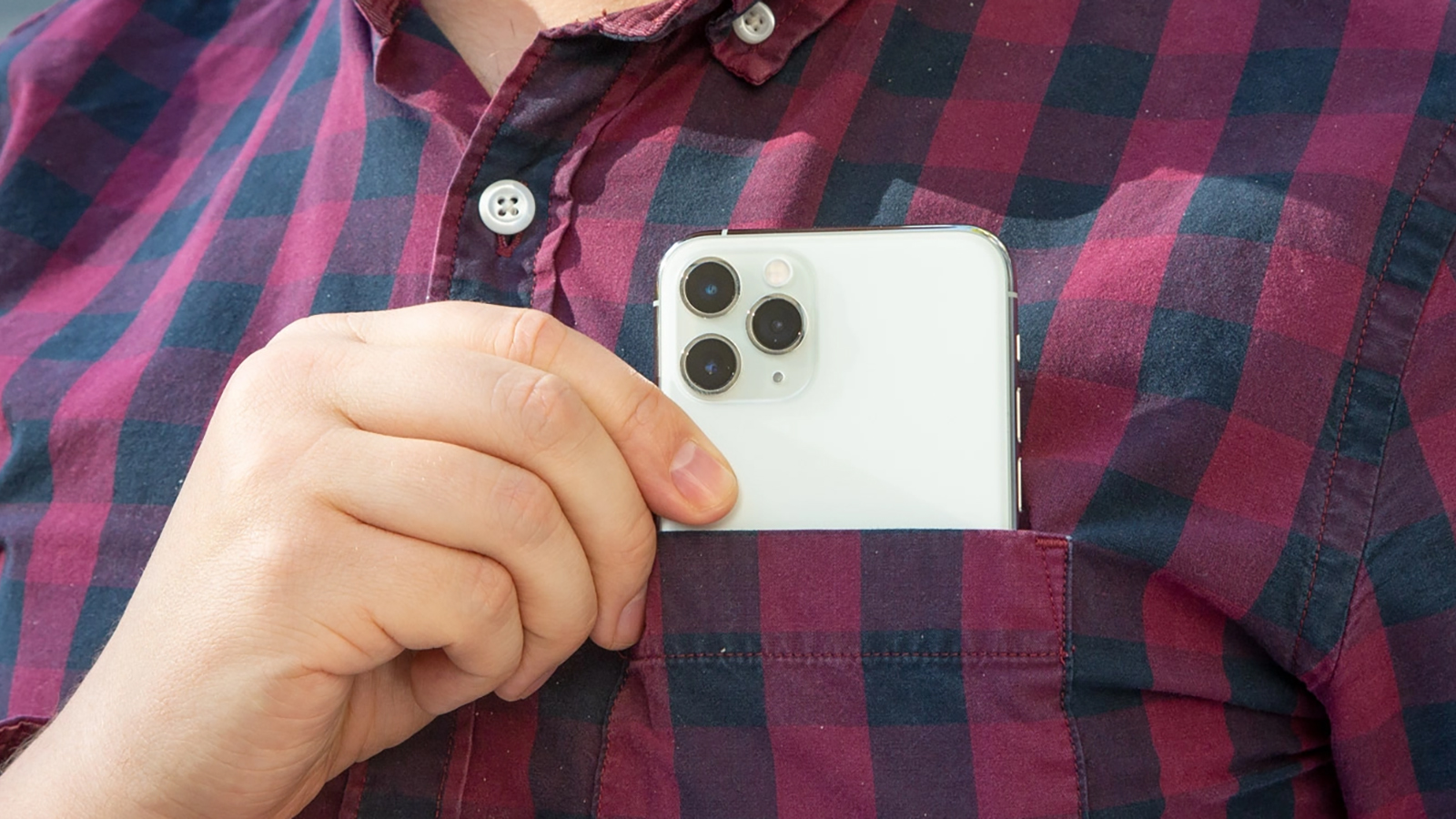
The iPhone 12 Pro’s slim form factor has had an unfortunate side-effect in the form of a 2815mAh battery. That’s smaller than the 3046mAh cell inside the iPhone 11 Pro.
If you thought that Apple could overcome that physical rollback with a more efficient CPU and software optimisation, you’d be wrong. The company admits that the iPhone 12 Pro lasts one hour less than the 11 Pro when it comes to video playback.
In terms of our own practical experience, we found the iPhone 12 Pro to be able to last through a full day and well into a second when we weren’t going too hard on it. However, when we went out and about and used the phone more heavily, it fared worse than the iPhone 11 Pro. 5G presents a heavy drain, too, if you can access it.
Apple has added an intriguing new way to recharge with the iPhone 12 Pro, repurposing its old MagSafe standard to produce a magnetised wireless charger. It works a bit like Qi wireless charging, but this time a purpose-built charging puck snaps into place on the back of the phone.
The thing is, you’ll have to buy this charger – and any other snap-on MagSafe accessories – separately. There’s nothing in the iPhone 12 Pro’s shrunken box to help you capitalize on its MagSafe feature.
Talking of which, the iPhone 11 Pro actually comes with a charging plug, whilst the iPhone 12 Pro only comes with a USB-C-to-Lightning wire in the box. You’ll need to pay an extra $19 / £19 / AU$29 to realize the 12 Pro’s full fast-charging potential.
iPhone 12 Pro vs iPhone 11 Pro takeaway
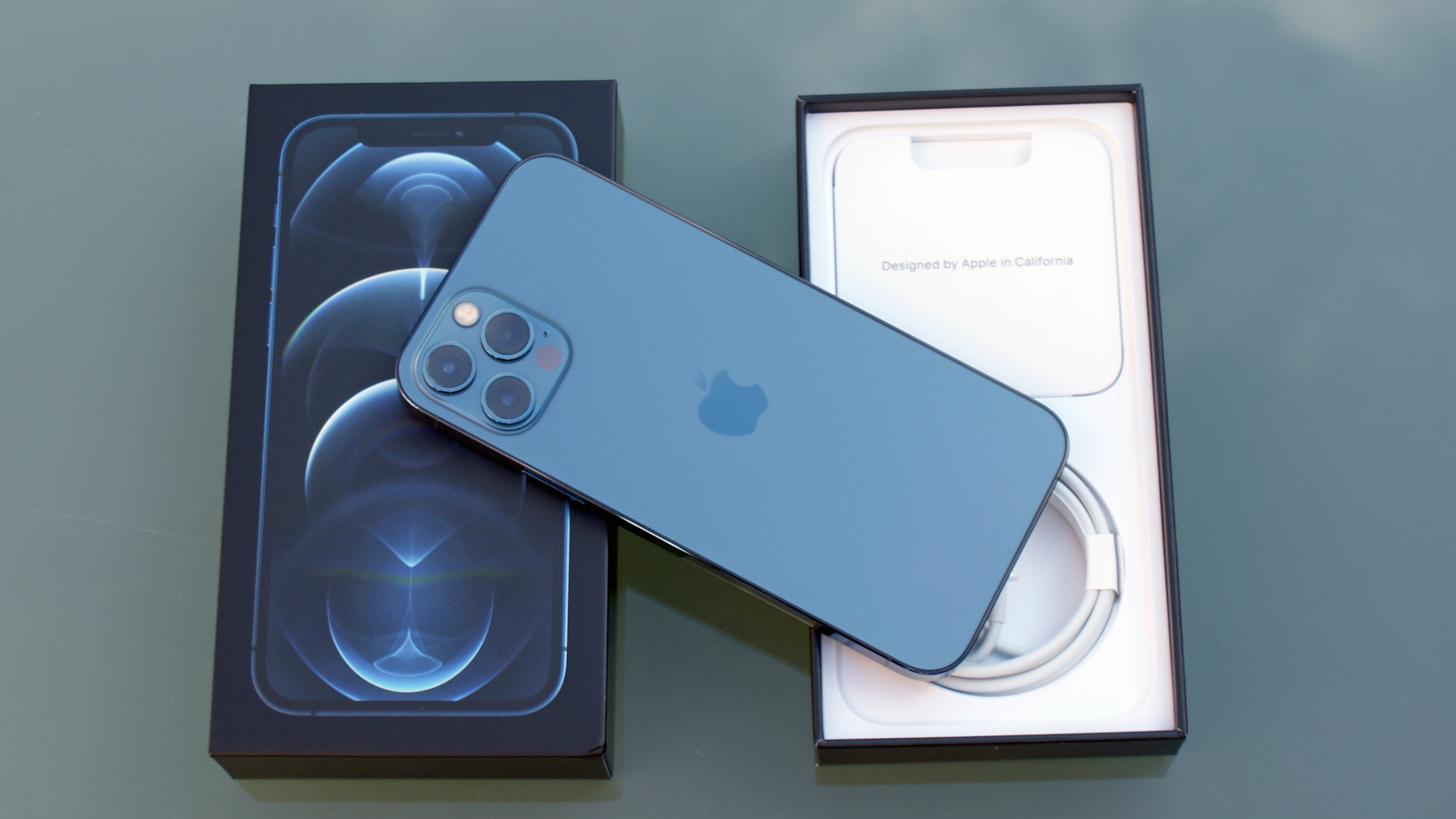
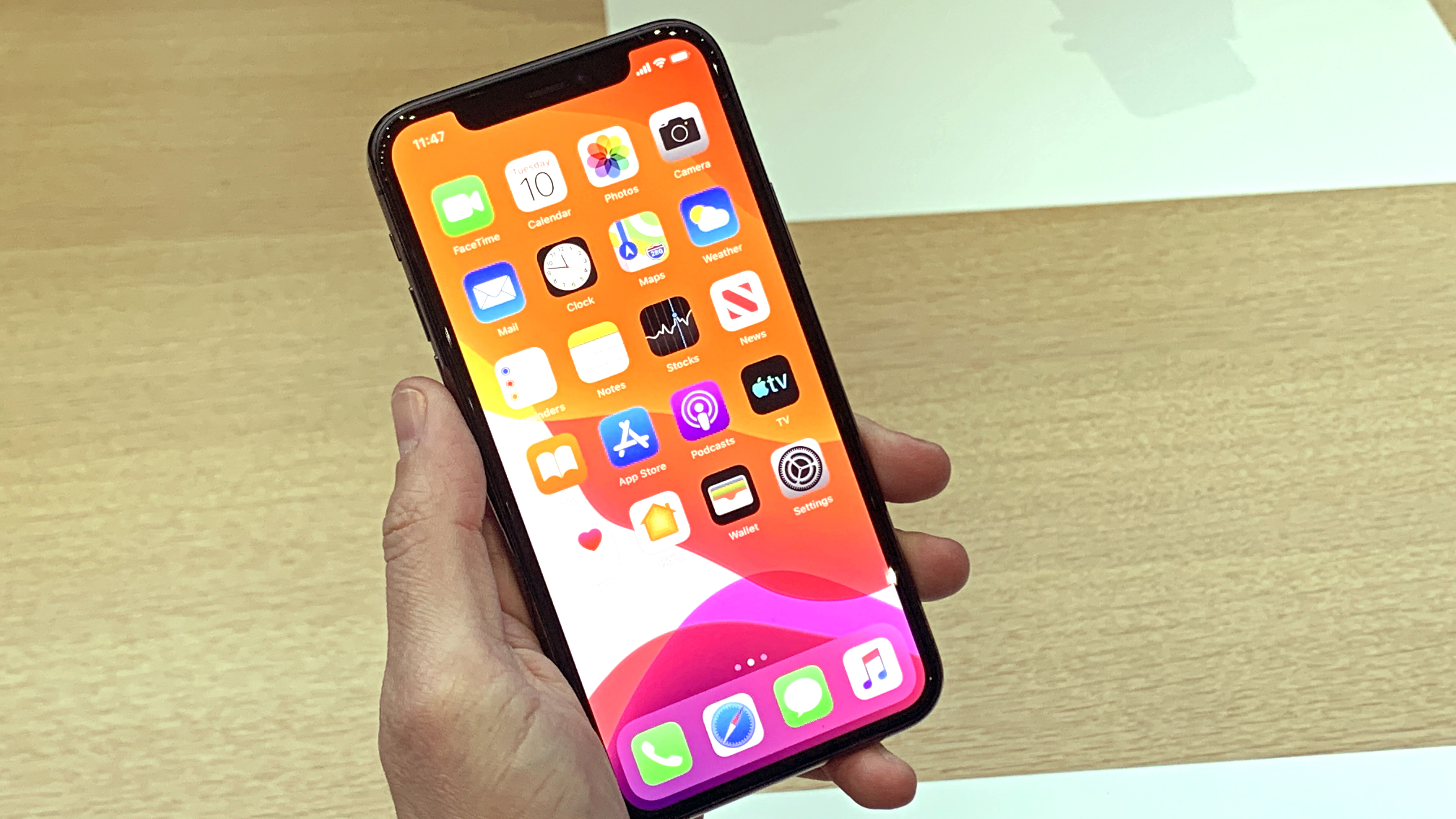
The iPhone 12 Pro is clearly a better phone than the iPhone 11 Pro, but the difference is far less pronounced than between the iPhone 12 and the iPhone 11, or even the iPhone 12 Pro Max and the 11 Pro Max.
Its slim, squared-off, toughened design is undoubtedly a step forward over the somewhat tired iPhone 11 Pro. The inclusions of 5G and MagSafe, meanwhile, are welcome if largely superfluous additions.
The only meaningful difference between the two displays is that the iPhone 12 Pro’s is slightly – and we do mean slightly – bigger. Camera quality is also in a similar ballpark, with the only meaningful advantage for the iPhone 12 Pro coming when the light drops.
While Apple’s latest A14 CPU is clearly faster than the A13 of the 11 Pro, you’ll only really see clear evidence of this a year or two down the line. Right now, both phones are fast enough in all situations to render any differences effectively meaningless.
The iPhone 12 Pro is the clear winner in a straight head-to-head fight. Its fresher design and more future-proof performance see to that, plus we’re not seeing hugely compelling price cuts on remaining iPhone 11 Pro stock just yet.
Should you find a bargain on the latter, however, rest assured that it offers a core experience that’s surprisingly close to its successor – at least in the short term.
- iPhone 12 vs iPhone 12 Pro: which is for you?
You might also want to check out the iPhone 12 Pro vs iPhone 12 Pro Max comparison.

Jon is a freelance journalist who has been covering tech since the dawn of the smartphone era. Besides TechRadar, his words and pictures have appeared in The Telegraph, ShortList, Tech Advisor, Trusted Reviews, Expert Reviews, and more. He largely covers consumer technology, with a particular focus on smartphones and tablets. However, he's also been known to dabble in the worlds of entertainment and video games.
